Newsletter 10 Oct 2022
Environment: What’s Up in GENeva | 10 – 16 October 2022

The Geneva Environment Network’s weekly newsletter includes the latest information on the global environmental agenda, main events, job vacancies, learning opportunities, as well as other useful resources and updates. Stay tuned and follow us also on Twitter, Facebook, LinkedIn, Youtube, or visit our website regularly for additional updates.
Image of the week | Side-event at HRC51 on Protecting the Frontline: Good Practices for Supporting Environmental Human Rights Defenders, launching the Executive Summary of the publication “Protecting the frontline: Good practices for supporting environmental human rights defenders”. © UNEP/GEN, Marina Garlatti, 5 October 2022.
Accelerating Sustainable Finance
This week, the UNEP FI Global Roundtable brings together decision-makers, experts and thought leaders on a virtual event platform to help shape approaches to integrating sustainability across the banking, insurance and investment industries. Held under the theme of “Transforming Finance, Accelerating Change” in partnership with Climate Action, this year’s edition will provide a platform for systemic impact and address critical emerging topics, including portfolio alignment, adaptation, impact management and connectivity between the finance sector and the real economy.
Ahead of COP27, the UN system is partnering with the incoming Egyptian Presidency of COP27 and the UN Climate Change High-Level Champions for COP26 and COP27 to organise a series of five regional forums on “Towards COP27: Regional Forums on Climate Initiatives to Finance Climate Action and the SDGs” bringing together key stakeholders from public and private sectors, to catalyse additional private sector investment in climate mitigation and adaptation in line with the SDGs, to identify and address financing bottlenecks, and to showcase and learn from success stories of private sector investment and share investment-ready climate initiatives in Member States. To deliver on climate change and sustainable development, the UNECE region must optimize the management of endowments of natural resources, including critical raw materials (CRMs). Join the UNECE Regional Forum on Climate Initiatives conference on 17 October at the Palais des Nations and online.
Last week, the conference Building Bridges already gathered some key experts from the finance sector in Geneva to discuss the sector’s role in achieving Agenda 2030 and create synergies among actors across sectors. → Find more on Sustainable Finance in Geneva in our update.
Outcomes of the Human Rights Council
The 51st Regular Session of the Human Rights Council (HRC51) concluded last week, with the adoption of the following resolutions on environmental-related matters:
- Technical assistance and capacity-building to address the human rights implications of the nuclear legacy in the Marshall Islands (HRC/51/L.24/Rev.1)
Recognizing the need to realize the right to a clean, healthy and sustainable environment of people in the Marshall Islands, the resolution requests the Office of the High Commissioner for Human Rights to provide technical assistance and capacity-building to the National Nuclear Commission of the Marshall Islands in advancing its national strategy for nuclear justice and determining its technical assistance and capacity-building needs to pursue transitional justice in its efforts to address the legacy of nuclear testing in the Marshall Islands. → Watch the Deputy Permanent Representative of the Marshall Islands to the UN in Geneva, Samuel K. Jr. LANWI, “We the people of the Marshall Islands are still suffering… The issue before this Council is straightforward and unambiguous. We put to you the human rights situation of the people whose only land was pulverized, with nuclear waste left behind. This legacy is beyond our capacity.”
- Human rights and indigenous peoples (HRC/51/L.31)
The resolution extends the mandate of the Special Rapporteur on the rights of Indigenous Peoples for a period of three years, with reference to highlighting the effects of climate change on the realization of human rights of Indigenous Peoples.
- The human rights to safe drinking water and sanitation (HRC/51/L.40)
The resolution extends the mandate of the Special Rapporteur on the human rights to safe drinking water and access to sanitation for three years. Recalling the right to a clean, healthy and sustainable environment, the resolution also highlights the importance of the gender dimension in the realization of these rights.
- National human rights institutions (HRC/51/L.16)
Recognizing the effects of climate change on the full realization of human rights, especially of indigenous peoples in vulnerable situations, part of the resolution highlights the role national human rights institutions in a human rights-based approach in climate action, and aims to strengthen the role of such institutions in each country.
The Executive Summary of the publication “Protecting the frontline: Good practices for supporting environmental human rights defenders” was launched at a side event.
→ Find more highlights, reports and news in our update on HRC51.
Climate News Ahead of COP27
Loss and Damage
As countries prepare for the Sharm el-Sheikh Climate Change Conference (UNFCCC COP27), which will start in less than a month, the Climate Vulnerable Forum and V20 recently launched the campaign “Payment Overdue“, demanding that the biggest polluters pay up for the loss and damage they have contributed to. The question of loss and damage is a key issue for upcoming negotiations. H.E. Amb. Wael Aboulmagd, special representative to the COP27 president, confirmed last week that Egypt as the host country is working prioritize this question in the upcoming talks. Recently, Denmark is the first country to pledge specific funding for loss and damage (USD $13 million).
Fossil Fuel Subsidy Reform
Following the launch of the work plan of the Fossil Fuel Subsidy Reform (FFSR) at the WTO 12th Ministerial Conference in June, WTO members committed to FFSR started a new series of meetings last week. In the context of the looming energy crisis, the 47 participating countries explored ways to phase out inefficient fossil fuel subsidies, keeping in mind long-term sustainability objectives. Ambassador Clare Kelly of New Zealand pointed out: “Rising fossil fuel prices have served to reinforce the need to accelerate the transition away from fossil fuels toward clean, green energy systems”.
The latest UNECE and UNEP Pan-European Environmental Assessment, launched last week, also highlighted, among other priorities, the need to eliminate or reform harmful subsidies and develop incentives to promote decarbonization by shifting investments towards renewables. Generally, the report calls for greater action to tackle the triple planetary crisis, noting that up until now setbacks and failure to make progress have been more common than successes.
Fossil Fertilizers
While governments in Europe and elsewhere have taken on to address the use of fossil fuel in some sectors, such as heating and transport, other sectors remain largely unexplored, such as agriculture. The report “Fossils, Fertilizers, and False Solutions“, released last week by the Center for International Environmental Law, explores how synthetic nitrogen fertilizer and pesticides are an underrecognized but significant driver of the climate crisis. By looking at chemical fertilizer market trends, its links to the fossil industry and its ecological and climate impacts, the authors reveal how these two industries are “capitalizing on the climate crisis to open new avenues for profit and production by laundering their emissions through the chemicals and agriculture sector”. → Read key highlights here.
Celebrating World Food Day in Geneva
World Food Day is celebrated every year on 16 October, with official celebrations held at the FAO headquarters in Rome. This year, the theme “Leave NO ONE behind” focuses on ensuring regular access to enough nutritious food for all around the globe. With the FAO Liaison Office in Geneva, various other international organizations and local associations active on food issues, Geneva also offers plenty of opportunities to celebrate the day, among them:
- Forum de l’alimentation durable | 11 – 16 October | The City of Geneva partners with various organizations to offer workshops, conferences and more to promote sustainable food practices among the local population. On Friday 15 and Saturday 16 October, activities will also take place in the train station Cornavin, including the possibility to taste the World Food Day soup made of unsold vegetables.
- A table! Mangeons local et durable | 1 – 31 October | Throughout the month of October, the City of Geneva promotes local, healthy and sustainable food. Over 30 restaurants are taking part in the initiatives by offering seasonal, local and plant-based meals. A contest will reward the restaurants most engaged for sustainability.
- Famine: Action and Prevention | 17 October 2022, 12:00 – 14:00 CEST | A conference organized by FAO, WFP, CIES and the Graduate Institute with Prof. Nicholas Haan.
- Les villes dans la politique alimentaire | 13 October 2022, 14:00 – 18:00 CEST | A conference with representatives from FAO Liaison Office in Geneva, OFAG, CNS-FAO, Helevetas, the City of Geneva, Ma-terre, and the State of Geneva (OCAN).
- Fête de l’ Agroécologie! | 14 & 16 October | Two-days of workshops and conferences hosted by the Fédération genevoise de cooperation and partners at Hépia
Sustainable food systems play a crucial role to address the triple planetary crisis and achieve the Agenda 2030. → Learn more about key issues at the food and environment nexus and the Geneva-based organizations active on this topic in our dedicated update.
International Disaster Risk Reduction Day
On 13 October, the global community celebrates the International Day for Disaster Risk Reduction, an opportunity to acknowledge the progress being made toward reducing disaster risk and losses in lives, livelihoods and health, while reminding the world that disaster risk is man-made. Official celebrations are hosted by the United Nations Office for Disaster Risk Reduction (UNDRR) under the theme “Early Warning For All”. → Find out more about activities for #DRRDay 2022 and environmental disaster risks reduction in our related pages.
International E-Waste Day
Each year on 14 October, International E-Waste Day provides an opportunity to reflect on the impacts of e-waste and the necessary actions to enhance circularity for e-products. In 2022, the focus of International E-Waste Day will be on small items of e-waste, under the slogan ‘Recycle it all, no matter how small!’. In 2019, the world generated over 22 million tonnes of small e-waste (around 40% of all e-waste produced globally), thus highlighting the need to enhance recycling practices and systems for these objects.
Geneva hosts many key actors working to reduce the environmental risks of e-waste. On this occasion, various activities will take place:
- The International Telecommunication Union (ITU) will be publishing its annual thought paper with the WEEE Forum, focusing on complimentary, novel solutions and concepts to drive e-waste collection rates.
- The Secretariat of the Basel, Rotterdam and Stockholm Conventions will launch lead various campaign to raise awareness of the e-waste amendments adopted by the Basel Convention Parties in June 2022.
- The UN Institute for Training and Research (UNITAR) and the Sustainable Cycle programme will launch a new course on “How to Prevent E-Waste?”.
World Standards Day
Taking place every year on 14 October, World Standards Day offers an opportunity to raise awareness and increase understanding of the importance of standardization. The campaign “Shared Vision for a Better World” aims to harness this day to emphasize how standards are crucial to achieving the Sustainable Development Goals. The International Electrotechnical Commission (IEC), the International Organization for Standardization (ISO) and the International Telecommunication Union (ITU), three major organizations based in Geneva, are leading the activities for this day. → Find out more about their work and that of other Geneva-based organizations in our update.
What (Else) Should I Read Next?
- 9th Environment for Europe Ministerial Conference closes with strong commitment to policy action for sustainable infrastructure and tourism | UNECE | 7 October 2022
The 9th Environment for Europe Ministerial Conference closed in Nicosia, Cyprus, on 7 October, with the adoption of a ministerial declaration affirming countries’ commitment to transition to a green economy with sustainable infrastructure at its core.
- The State of the World’s Forests 2022 | FAO | October 2022
The 2022 edition of The State of the World’s Forests explores the potential of three forest pathways for achieving green recovery and tackling environmental crises, including climate change and biodiversity loss. Stressing that there is no time to lose, the report presents evidence on the feasibility and value of the pathways and outlines initial steps that could be taken to further pursue them. - OEWG1: Science-Policy Panel to Contribute Further to the Sound Management of Chemicals and Waste and to Prevent Pollution | Earth Negotiations Bulletin | 6 October 2022
Pursuant to UNEA resolution 5/8, the first meeting of the OEWG was held in a hybrid format last week, with the goal of electing a Bureau and addressing other organizational matters. Electing the Bureau proved tricky as one region could not reach consensus on its nominees; the finalization of the Bureau will take place at the second segment of OEWG 1 in early 2023. Member States also discussed generally what the SPP could look and agreed that three meetings of the OEWG over two years should be sufficient to generate proposals in time for the intergovernmental meeting to be held in early 2025. - Joint letter to the EU Commission on the revision of REACH | Austria, Belgium, Denmark, Finland, France, Germany, Luxembourg, and Norway | 4 October 2022
Ministers of Environment from eight EU countries addressed a joint letter to the EU Commission stressing the importance of a timely implementation of the ambitious Chemicals Strategy for Sustainability, including the importance of revising REACH in order to protect health and environment in the EU. - Methane, a threat and an opportunity | Eco-Business | 5 October 2022
While discussion on climate change has often focused on carbon dioxide emissions, increasing attention has been brought to methane, a greenhouse has which holds a warming potential about 80 times bigger than CO2. As methane only lives in the atmosphere for a decade or so, it also provides an opportunity to rapidly reduce atmospheric concentrations, thus making significant contribution to climate change mitigation.
- Plastic pollution and infectious diseases | Pierre-Olivier Maquart et al. | The Lancet Planetary Health | October 2022
This scientific article explores the effect of macroplastics on the proliferation and propagation of infectious diseases and thus on human and livestock health. The results show that the influence of plastic waste on infectious disease maintenance and emergence is underestimated. The authors are calling for a transdisciplinary approach and further research to understand and prevent plastic debris from influencing local vector-borne and waterborne diseases.
- One World, One Health – Tackling the Superbug Challenge | Dame Sally Davies | Health Policy Watch | 4 October 2022
Humans, animals, plants and the environment we all share face escalating risks from antimicrobial resistance (AMR), with the potential for irreversible damage ever more likely. Both our health and the health of the planet are at stake, says a leading champion for more action. - Montebello Islands nuclear test research finds radiation still present 70 years after blast | Amelia Searson and Peter Barr | ABC News | 7 October 2022
Radiation is still present on the Montebello Islands, 70 years after the British military conducted Australia’s first-ever nuclear weapons test, and it is not clear if the islands are completely safe.
Events
See all

Virtual
UNEP FI’s 17th Global Roundtable | Transforming Finance, Accelerating Change
10 – 14 Oct 2022
Online
UNEP FI
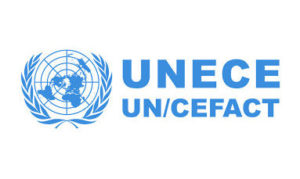
Body Meeting
28th Session of UN/CEFACT Plenary
10 – 11 Oct 2022
Conference Room Tempus 3, Palais des Nations
UNECE

Body Meeting
10th meeting of the Task Force on Public Participation in Decision-making under the Aarhus Convention
10 – 11 Oct 2022
Palais des Nations | Room XXII
Aarhus Convention

Body Meeting
Meeting of the Bureau of the Conference of the Parties to the Basel Convention
11 – 12 Oct 2022
International Environment House 2, Geneva
BRS

Body Meeting
Expert meeting on Best Available Techniques and Best Environmental Practices under the Stockholm Convention
11 – 13 Oct 2022
Geneva
BRS

Virtual
Briefing on the amended Annex A of the Minamata Convention on Mercury | Minamata Online 3
11 Oct 2022 09:00 – 16:00
Online | Webex
Minamata Convention on Mercury

Body Meeting
OHCHR-UNEP joint briefing for member States on UN system efforts to advance the right to a healthy environment
11 Oct 2022 14:00 – 16:00
Palais des Nations
UNEP, OHCHR
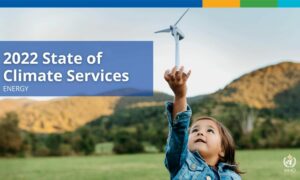

Virtual
Invitation for Comments to the Draft Reporting Guidance, as per Decision MC-4/8 | Minamata Online 3
12 Oct 2022 13:00 – 14:00
Online | Webex
Minamata Convention on Mercury

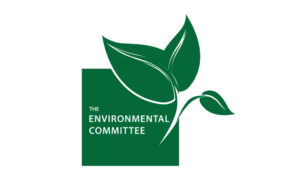
Conference
Deep-Sea Mining | Current Challenges
12 Oct 2022 17:30
The Fab, Petal 02, 4th Floor, IHEID
IHEID
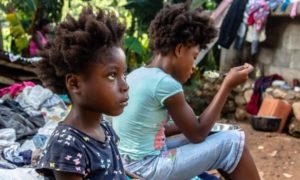
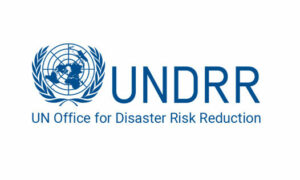
Virtual
All-of-society approach to multi-hazard early warning systems
13 Oct 2022 15:30 – 17:00
Online
UNDRR
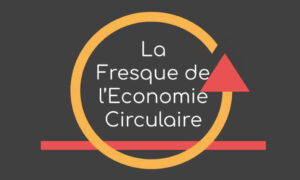
Workshop
Fresque de l’économie circulaire
13 Oct 2022 18:00 – 21:00
Haute école de gestion de Genève
La Fresque de l'Economie Circulaire


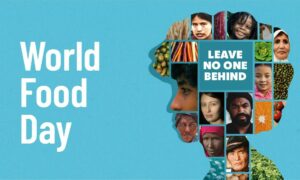
Jobs
See all
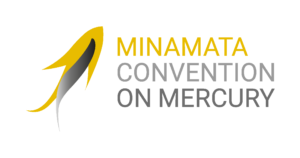
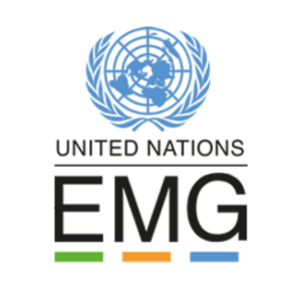
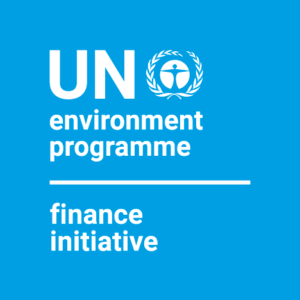

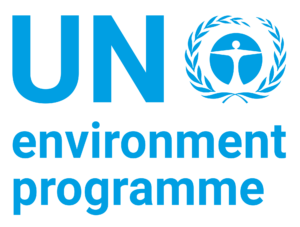
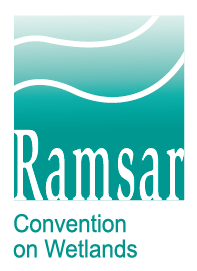


Learning
See all
Online Course
International Water Law and the Law of Transboundary Aquifers
10 Oct – 11 Dec 2022
Geneva Water Hub

Nature-based Solutions – Professional Certificate on IUCN Global Standard™
11 Oct – 18 Nov 2022
IUCN

Course in Geneva
Environmental Governance & Policy-Making
14 – 31 Oct 2022
Maison de la Paix, The Geneva Graduate Institute
IHEID
Updates
See all

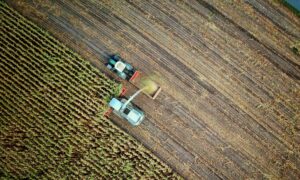
29 Jan 2024
Food Systems and the Environment
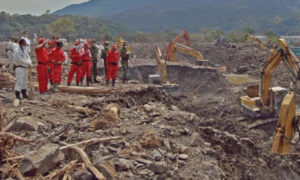
13 Oct 2022
Environmental Disaster Risk Reduction

25 Mar 2024
The Growing Environmental Risks of E-Waste

13 Oct 2022
